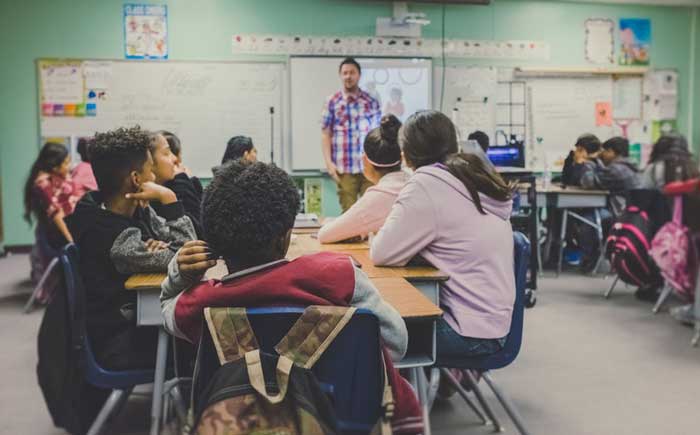8 Most Unusual School Classes in the World
In some countries, schooling has already started, while in others schoolchildren still enjoy vacations. After about a month all the pupils of most countries will already sit at their desks. Children will begin to study mathematics, chemistry, physics, literature … But in some schools, in addition to ordinary subjects, some unusual courses have been introduced into the curriculum much to people’s surprise and sometimes even envy. Our review contains 8 most unusual subjects that students study in different countries of the world.
 Japan: Admiring Nature
Japan: Admiring Nature
Some schools in Japan have a very unusual subject called “Admiring Nature”. Its goal is to teach schoolchildren to appreciate the beauty of the environment, which modern children simply do not notice due to world-wide computerization. During the classes, children study the peculiarities of flora and fauna development and interaction. These observations are assessed by the teachers, and at the end of the year, the students even take exams.
Germany: Lessons of Happiness
This unusual subject hasn’t been introduced in all German schools yet, but Lessons of Happiness are conducted by the headmaster himself in one of Heidelberg’s educational institutions. The students’ main task is to learn to live in harmony with themselves, listen to their heart and just be happy. There are no exams in this subject, but each student should implement their own project by the end of the year: to shoot a positive video or get engaged in charity.
Israel: Theory and Practice of Cyberwars
Some schools in Israel have an unusual subject called “Cybersafety“. The reason for the introduction of this class was the great cyber dependency of children, which not only parents but also doctors began to talk about. During the classes of theory and practice, students are taught how to behave in social networks, how to react and respond to comments. Besides, a considerable part of the subject is devoted to addiction to computer games and the ways of handling it.
Bashkortostan (Russia): Beekeeping
In Bashkiria, more than a hundred schools have their own bee-gardens. Classes in beekeeping teach the children to properly care for insects, collect honey etc. The fact is that the Republic of Bashkortostan is considered one of the world’s leaders in terms of honey production. In order not to lose this honorary title, some educational institutions have introduced such an unusual subject.
Australia: Surfing Lessons
Residents of the green continent can rightly be called the best surfers on the planet. To preserve the title of the best wave conquerors, all schools in Australia have introduced surfing lessons. The authorities of the country have done everything possible to prevent any tourist surfing better than the local ones from appearing on the beaches.
Armenia: Folk Dances
Armenian authorities are doing everything to ensure that the younger generation does not forget the traditions of their beautiful country. That is why all schools introduced a special course called Folk Dances. At the classes, schoolchildren are taught not only choreography but also the history of dances. There is no way for the students to escape from this subject: at the end of the school year, they take exams. Failing to receive a good grade in this course, you can stay in the same form for another year.
USA: Scientific Discoveries
All American schools have introduced an unusual for many countries subject, which is called “Scientific Discoveries”. Its objective is to reveal the potential of young scientists. After the theoretical course, all students are given one task – to invent something new. The pupils are given a whole year to cope with it. After the course completion, the students present their inventions to the whole class, discuss the relevance of the project and evaluate it.
Russia: Financial Literacy Lessons
Some Russian schools have introduced a very interesting subject called “Financial Literacy”. In the classroom, children are taught how to properly manage money and how to plan a family budget. The lessons also tell a lot about how not to become victims of financial fraud. The didactic materials for the lessons were developed within the framework of the project “Assistance in raising the level of financial literacy of the population and the development of financial education in the Russian Federation” initiated by the Ministry of Finance of the Russian Federation and the World Bank. This subject has been introduced only as an elective course, but it is not ruled out that it will become obligatory very soon.



